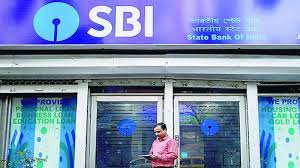Just three days before the Supreme Court’s ruling that declared electoral bonds unconstitutional, an RTI investigation unveiled that the Finance Ministry had authorized the Security Printing and Minting Corporation of India (SPMCIL) to print 10,000 electoral bonds valued at Rs 1 crore each. This authorization came to light through file notations, correspondence, and email exchanges between the Finance Ministry and the State Bank of India (SBI), as reported by The Indian Express.
However, in the wake of the Supreme Court’s decision on February 28, the Finance Ministry promptly directed the SBI to halt the printing of these bonds.
The revelation further disclosed that before the directive to cease printing, SPMCIL had already produced and dispatched 8,350 electoral bonds to SBI.
The SBI’s Assistant General Manager of its Transaction Banking Department communicated the instruction to stop printing in an email dated February 28, titled “Hold on Printing of Electoral Bonds — Electoral Bond Scheme 2018.” The email requested SPMCIL to suspend the printing of the remaining 1,650 electoral bonds approved earlier.
In a significant verdict on February 15, the Supreme Court declared the electoral bonds scheme unconstitutional, stating that it infringes upon the constitutional rights to freedom of speech and expression, as well as the right to information.
As per the court’s directives, the SBI submitted data related to the purchase and redemption of electoral bonds to the Election Commission on Tuesday evening. This data included details such as the buyer’s name, date, denomination of each bond sold, and details of redemption, including the party’s name, date, and denomination of each bond redeemed from April 12, 2019, onwards.

